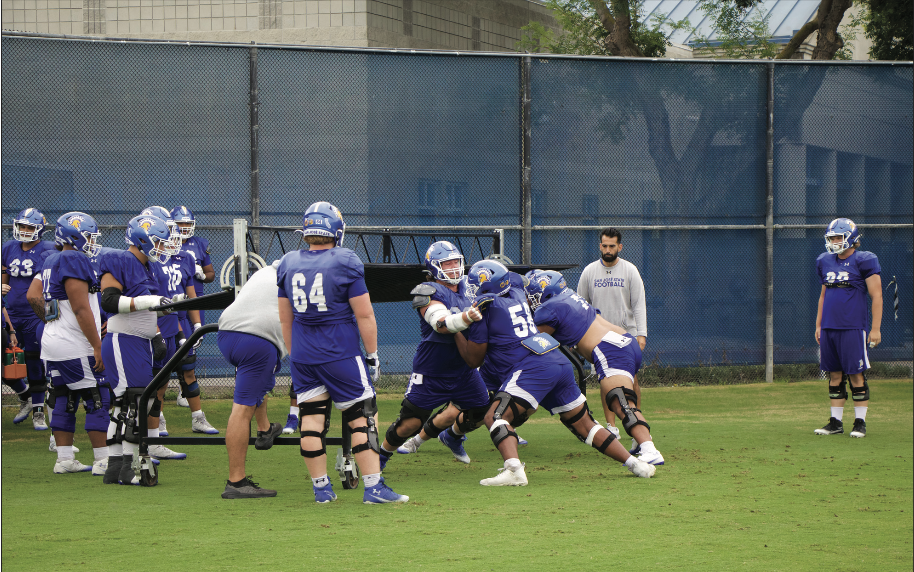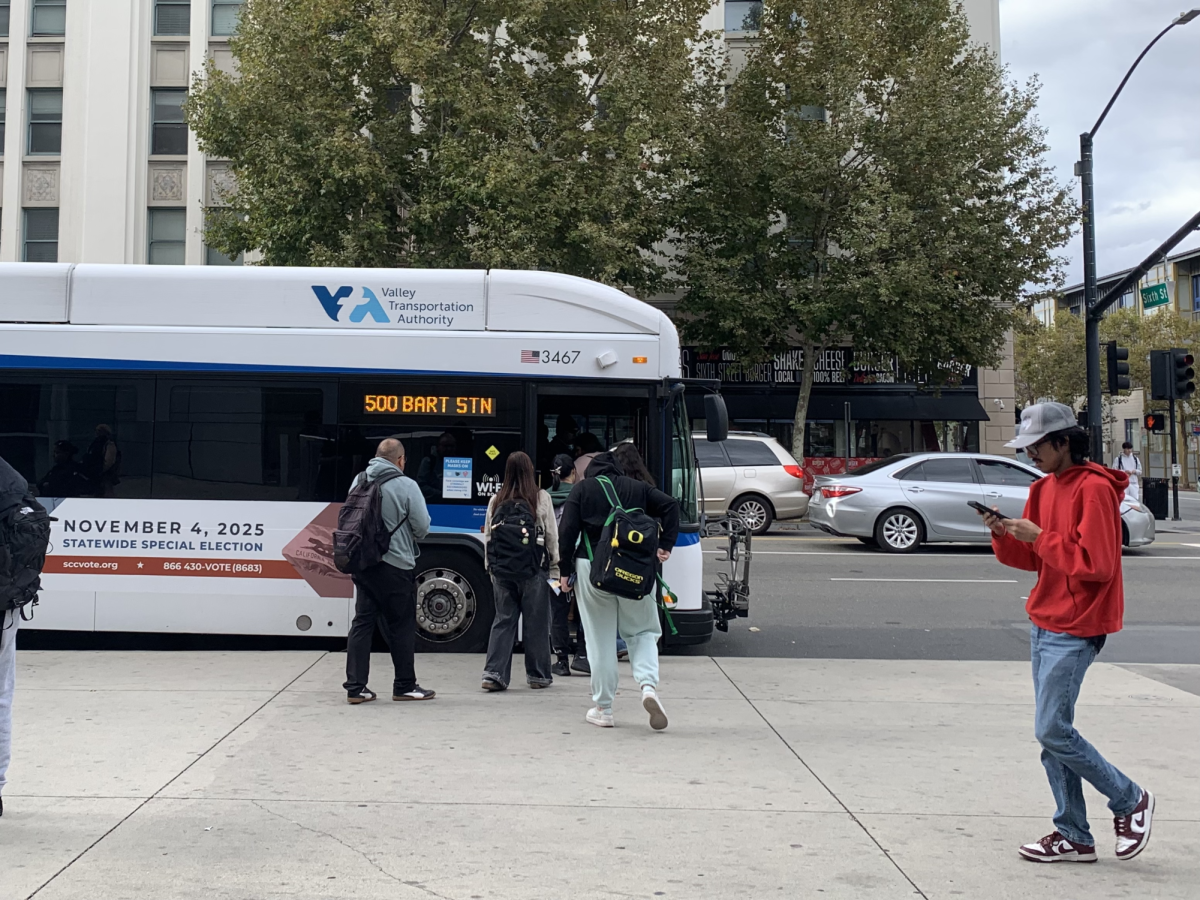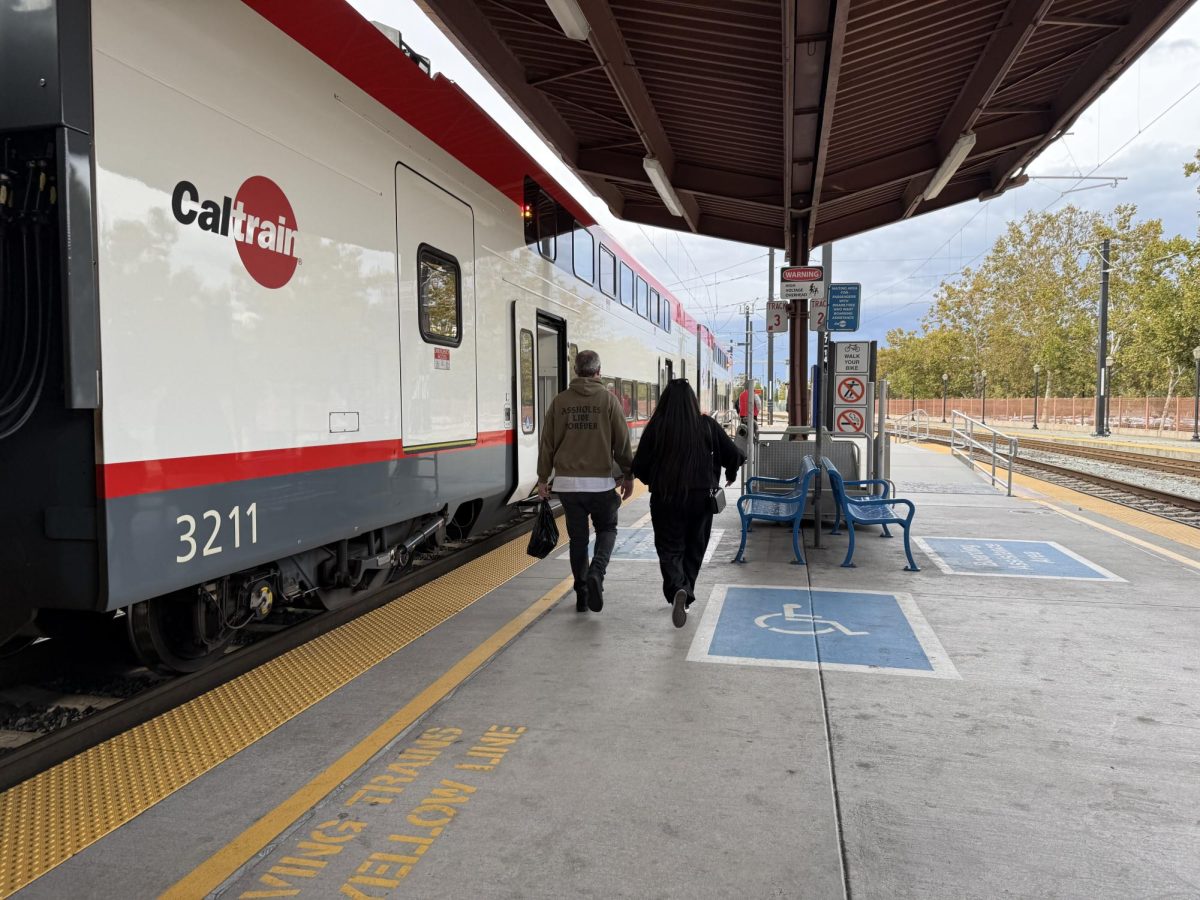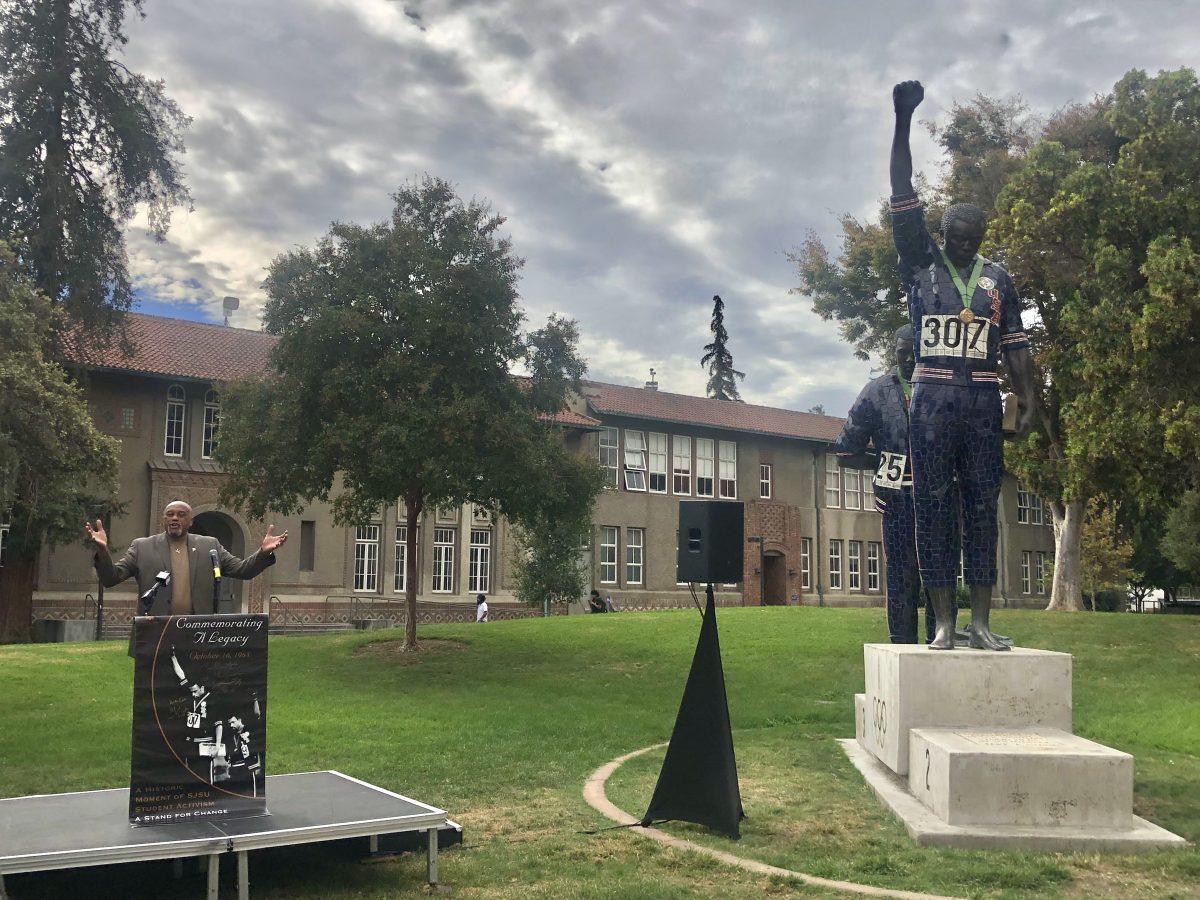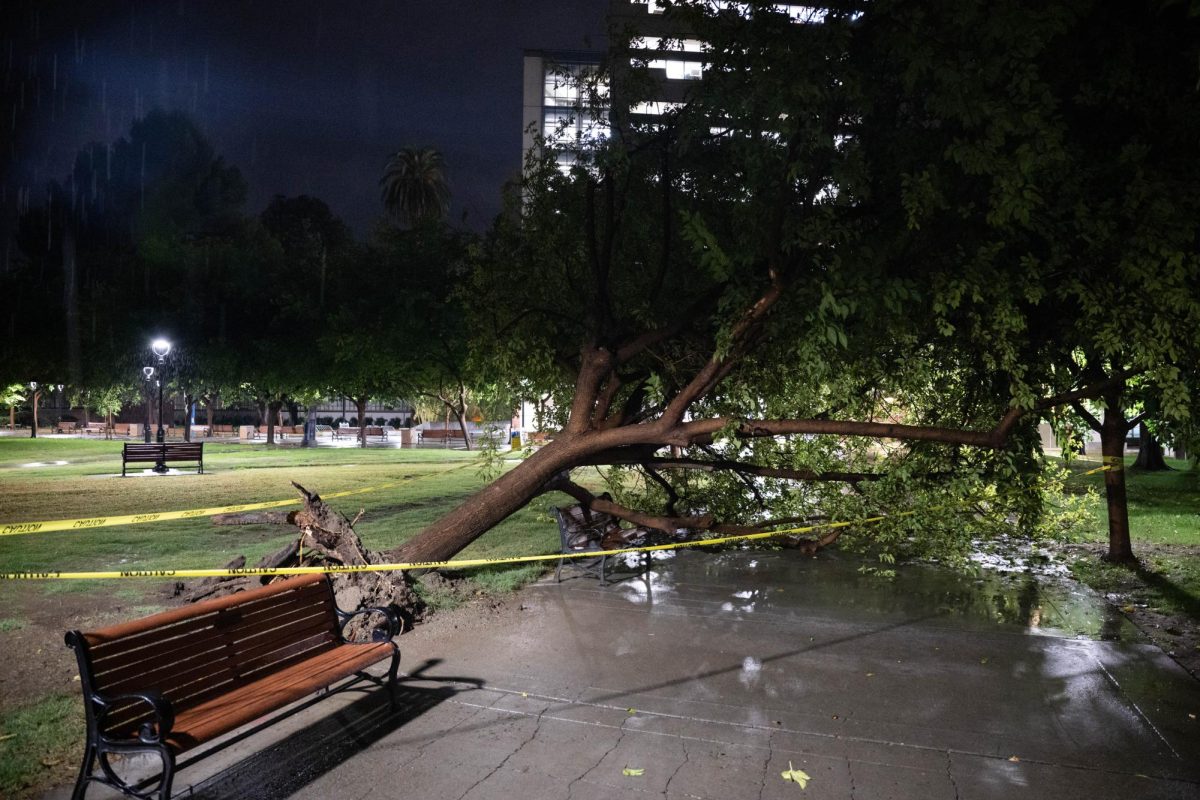Oct. 16 has been declared as Tommie Smith and John Carlos Day in the City of San José.
Mayor Matt Mahan of San José announced during the Day of Action Ceremony on Wednesday that the city was dedicating the day to Smith and Carlos because of their historic act in 1968.
“We are officially designating Oct. 16 as Tommie Smith and John Carlos Day in the city of San José,” Mahan said.
As Smith and Carlos stood on the podium to receive their respective medals in the Olympic Games of 1968, they both wore black socks with no shoes. Smith wore a black scarf and as the U.S. national anthem played, they both raised a black-gloved hand in silent protest, according to an Oct. 15, 2023 BBC article.
To honor the actions of Smith and Carlos, Legacy Month is celebrated every October to commemorate the protest at the 1968 Olympic Games, according to an Oct. 1, 2021 San José State University blog post.
Though Carlos was not present at the ceremony, Smith addressed the crowd.
“Change is here,” Smith said. “What we have to do is maintain the running of that change.”
The black socks without shoes represented African American poverty, the black scarf stood for black pride, the beaded necklace that Carlos wore symbolized the lynchings of African Americans and the left fist raised represented black unity, according to the same BBC article.
Wahhab Salemi, a third-year political science student, said he was honored to introduce Smith.
“I think it’s really rewarding and fulfilling to be a part of such a momentous occasion,” Salemi said. “Legacy Month is very much centered around Tommie Smith and John Carlos and to celebrate them in real time is really exciting.”
Smith and Carlos were part of the Olympic Project for Human Rights, formed by amateur African American athletes to organize a black boycott of the 1968 Olympics, according to a Civil Rights Teaching article.
“Breaking that barrier is always difficult and so, I definitely think that their actions helped pave the way for other students and other athletes,” Salemi said.
The Olympic Project for Human Rights main goal was to expose how the U.S. used African American athletes to highlight a lie about race relations, according to the same article.
“It was started here, by students on the San José State campus,” Smith said. “Night after night, we met and talked about the need for a change in the system.”
Smith and Carlos were track-and-field runners for SJSU and they said they were excited to go to the Olympics because they knew that would give them a platform to tell the truth, according to Smith.
“I didn’t say very much back then because I didn’t talk like I talk now, which is all the
time, but we knew what we had to do,” Smith said.
The 1968 Olympics were expected to be politically charged because of the assassination of Dr. Martin Luther King Jr. occurred only months before the event, but it still managed to cause a media sensation, according to a History article.
When they arrived at the games, the United States Olympic & Paralympic Committee, they were warned that if they did something wrong, they would be sent home.
“(Carlos) and I kind of looked at each other and said, ‘man, looks like we’re gonna be sent home,’ ” Smith said.
After they received their medals on the podium, Smith said he and Carlos were thrown out of México City by the United States Olympic & Paralympic Committee.
“We glorified the victory stand by telling the truth and that truth was, here we are,” Smith said. “We earned, we deserved. Racism, take a back seat.”
Mahan said he regretted that Smith and Carlos experienced unemployment and racism when they came back to San José from the México City Olympic Games.
“I believe your activism can also be translated into whatever you choose to do with this incredible education,” he said. “Every career gives you the opportunity to serve the community and make the world a more equitable and just place if you approach it in the right way.”
Smith said he and Carlos knew they would be in trouble afterward, but they also knew they had a job to do.
“After the victory stand, we were turned as overzealous in our actions, but we fought and almost died for our reasons to do what we did,” Smith said.
At the event, Alaiyah Holland, a business administration marketing third-year student, sang the Black National Anthem.
“It just made me want to do more on campus,” Holland said. “I was getting emotional and it’s been great to meet so many inspiring people.
Diana Victa, the manager of the César Chávez Community Action Center said the center sponsored the event.
“It’s important for me to mention that as we conceptualize Legacy Month,” Victa said. “Oftentimes we forget that our existence right here – my existence right here on this stage – would not have been possible without student activism.”
SJSU President, Cynthia Teniente-Matson spoke at the event about its significance.
“Their message is clear today as we look back,” Teniente-Matson said. “Their message is that sport is just more than competition. Sport is about character, conviction and making a difference.”
Their salute came to be known as the Black Power salute and is one of the most famous moments of political speech in the Olympics, according to a History article.
“Once we stepped off that victory stand, we knew our job had just begun,” Smith said.
Throughout the event, Smith addressed students by telling them multiple times to stay in school and persevere through college.
“You have a job to do, and that job to do is to maintain the idea that you are somebody,” Smith said. “You will make it.”



